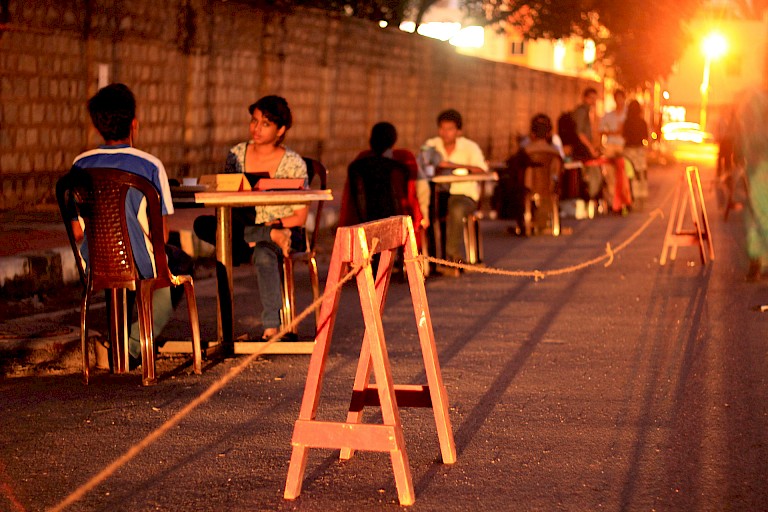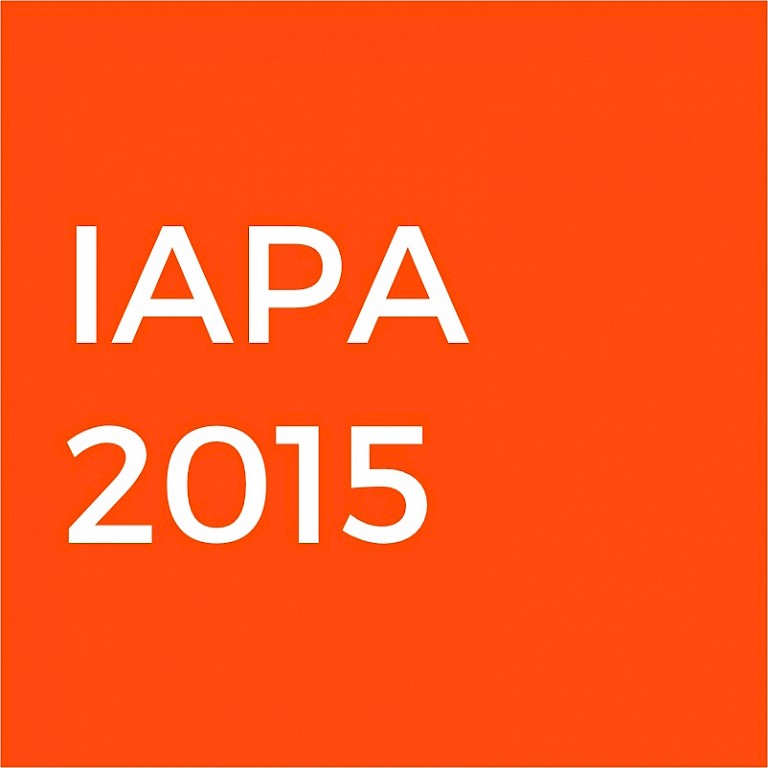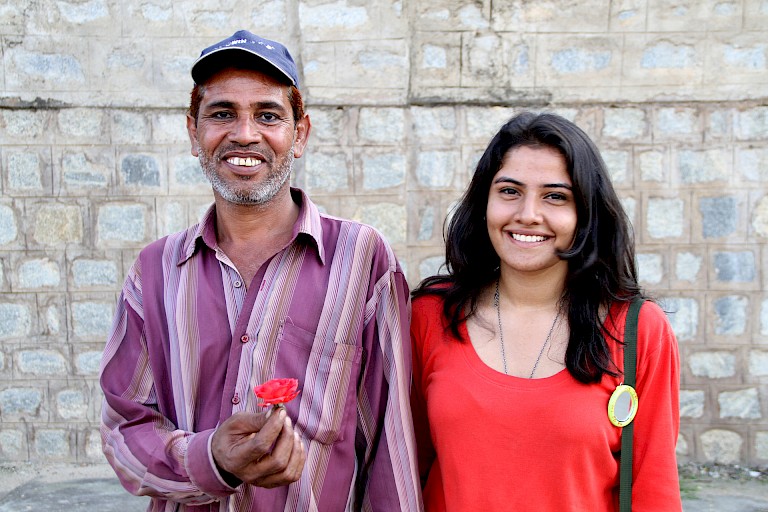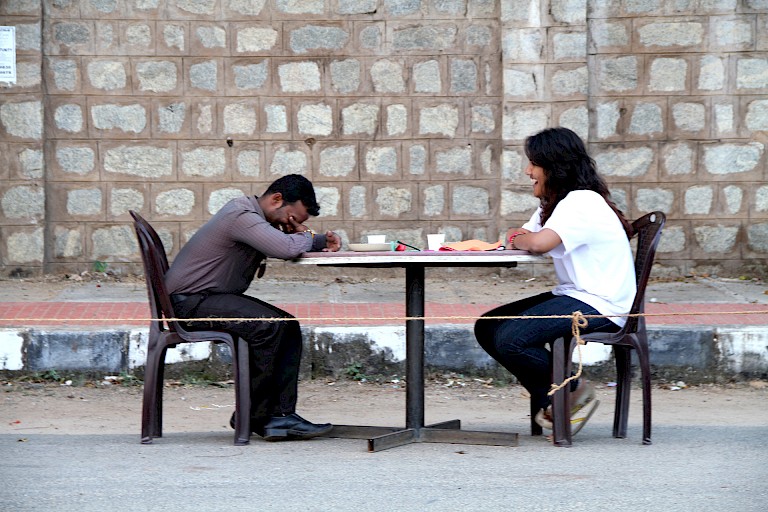



Blank Noise involved and continues to involve public conversations on issues of sexual violence in India. It has also realized numerous discrete interventions in several cities, relying on volunteers known as ‘action heroes.’ According to the artist, ‘action heroes’ are ‘a growing community of citizens, male and female’ who donate time and energy to the collective’s cause. One notable intervention was Talk to Me (2012), a project facilitated by Patheja with Srishti School of Art, Design and Technology students over one month in Bangalore. In Talk to Me, participants (Yelahanka Action Heroes) identified a site in the Yelahanka neighborhood in which they felt sexually threatened: a quarter-kilometer stretch of street without public lighting or shops in which eve-teasing often took place at night.
The action heroes set up tables and chairs signposted with “action guidelines” inviting the public to engage in conversation about “anything except sexual violence” on “Safest Lane” as a 4-hour-long public encounter. In a convivial spirit, tea and samosas were provided for the conversations. Participants were all gifted a flower at the end of each conversation. By engaging in the conversation, the action heroes were given an opportunity to reframe their perceptions of vulnerability and threat in relation to the site. Furthermore, the action also functioned to temporarily reclaim the stretch of road for public good, brokering encounters between locals, strangers, across the barriers of class, caste, religion, gender, and language, thereby sowing the seeds for community cohesion and emotional investment in the site. Talk to Me has subsequently been staged in other cities including New Delhi and Kolkata.
Blank Noise’s interventions, including but not limited to Talk to Me, are highly commendable for their engagement of the public in tackling a deeply entrenched social problem. The projects are highly accessible, the image of the action hero being one that lends itself well to positive identification, and the vocabulary of action being immediately comprehensible (sitting down for tea and samosas to chat, for example). Blank Noise may be considered a feminist intervention, continuing a feminist art tradition that began in the early 1970s in the US, in a mode that is sensitive and responsive to the complex conditions of India. TED and Ashoka Fellowships, as well as extensive coverage of the artist and Blank Noise online and in print media, attest to the collective’s success and continuing relevance to society.
All copyright belongs to Shanghai Academy of Fine Arts, Shanghai University.



